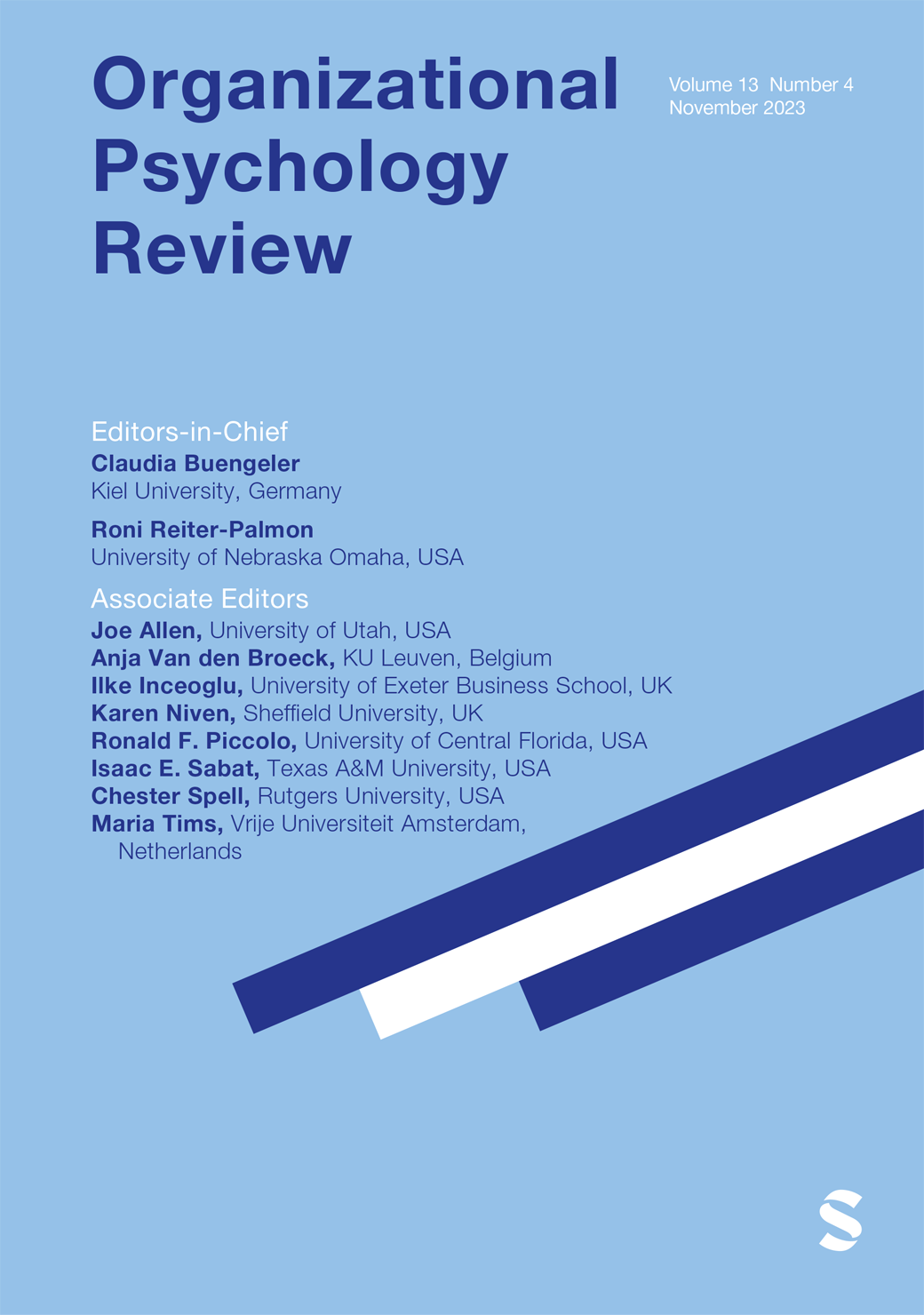地位的本质:探索概念化和衡量地位的各种方法
IF 7.1
1区 心理学
Q2 MANAGEMENT
引用次数: 0
摘要
小团体成员从根本上渴望获得地位,因为地位是成员自我概念的基础,并决定着成员在团体中的行为。此外,群体成员会随时调整和更新地位感知,以显示自己和其他成员的社会地位。然而,由于研究人员研究地位的方式各不相同,我们对地位的理解也就模糊不清。在本综述中,我们通过描述定义、测量方法和分析框架的差异性,将有关地位性质的知识具体化。我们主张对地位进行定义,将尊重、钦佩和自愿服从等属性结合在一起。我们还区分了声誉地位和关系地位的可操作性,并探讨了与测量有关的影响以及涉及数据管理和分析的下游决策。我们鼓励采用深思熟虑的方法,以确保在研究项目中对地位的定义、衡量和分析方式保持一致。本综述还为理论和假设的产生提供了指导,这些理论和假设涉及与地位相关的过程如何根据不同的地位形式或不同的背景而变化。本文章由计算机程序翻译,如有差异,请以英文原文为准。
The nature of status: Navigating the varied approaches to conceptualizing and measuring status
Members of small groups fundamentally desire status as status underpins members’ self-concept and dictates behavior in groups. Moreover, group members readily orient and update status perceptions that index the social standing of themselves and other members. Yet, our understanding is obscured by variability in how researchers study status. In the current review, we crystallize knowledge regarding the nature of status by characterizing variability in definitions, measures, and analytic frameworks. We advocate a definition of status that draws together attributes of respect, admiration, and voluntary deference. We also distinguish reputational and relational status operationalizations and address implications pertaining to measurement along with downstream decisions involving data management and analysis. We encourage a deliberate approach to ensure congruency in how status is defined, measured, and analyzed within a research program. This review also guides theory and hypothesis generation regarding how status-related processes may vary based on different forms of status or differing contexts.
求助全文
通过发布文献求助,成功后即可免费获取论文全文。
去求助
来源期刊

Organizational Psychology Review
Multiple-
CiteScore
10.00
自引率
1.60%
发文量
25
期刊介绍:
Organizational Psychology Review is a quarterly, peer-reviewed scholarly journal published by SAGE in partnership with the European Association of Work and Organizational Psychology. Organizational Psychology Review’s unique aim is to publish original conceptual work and meta-analyses in the field of organizational psychology (broadly defined to include applied psychology, industrial psychology, occupational psychology, organizational behavior, personnel psychology, and work psychology).Articles accepted for publication in Organizational Psychology Review will have the potential to have a major impact on research and practice in organizational psychology. They will offer analyses worth citing, worth following up on in primary research, and worth considering as a basis for applied managerial practice. As such, these should be contributions that move beyond straight forward reviews of the existing literature by developing new theory and insights. At the same time, however, they should be well-grounded in the state of the art and the empirical knowledge base, providing a good mix of a firm empirical and theoretical basis and exciting new ideas.
 求助内容:
求助内容: 应助结果提醒方式:
应助结果提醒方式:


